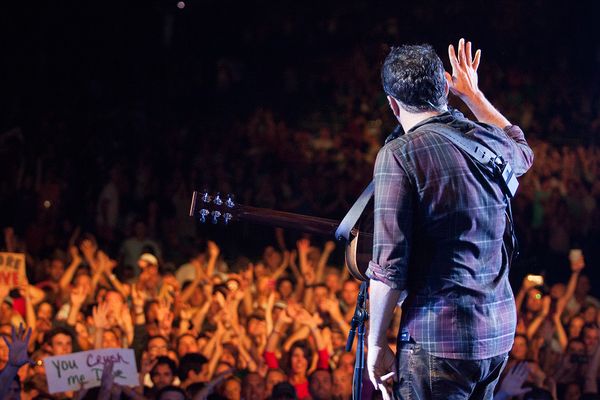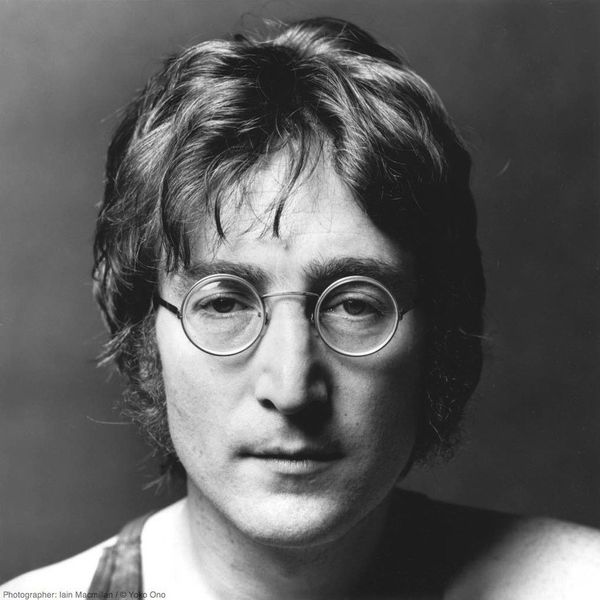In a 1969 review of Los Angeles based rock band The Doors, playwright Harvey Perr commented that “there is no art if there is no humanity.” 47 years later, Perr’s concise rationale still serves as an enlightening explanation as to the allure and intrigue that surrounds one of the most iconic figures in the history of rock and roll. Even 45 years after his death, The Doors front man Jim Morrison is as an unparalleled source of admiration and inspiration, simply because he so generously gave us his humanity as his art.
Born into an active military family, Morrison’s childhood was marked by few constants aside from his two younger siblings, whom he ceaselessly tormented, and an insatiable appetite for poetry and literature well beyond his years. Even at a young age, Morrison’s self reflective poetry, often surrounded by vulgar hand-drawn cartoons, was indicative of the genius and passion that would manifest itself more intensely in his adult life. Morrison’s magnetic and volatile personality dominated his early relationships, captivating his schoolmates, teachers, and the young girlfriends who served as his poetry’s muses and the subjects of his psychological testing and abuse. As Morrison aged, these patterns only continued.
At Florida State University, and later UCLA, Morrison’s artistic prowess was devoted toward film, specifically cinematography. The excessive partying and reckless lifestyle he had began cultivating in high school continued throughout his collegiate years. Surrounding himself with like-minded intellectuals, Morrison’s time was often spent in philosophical debate, frequent trips to Venice Beach, and vast drug experimentation. After graduating from UCLA in 1965 (though he opted for a drug induced haze at Venice Beach rather than being present to accept his diploma the day of his graduation), he spent the summer mirroring the life style of the beat poets he idolized; sleeping on couches, milling about Los Angeles, and writing poetry. That August, Morrison read one of his poems to an old friend he happened to encounter at Venice Beach. Immediately after hearing what would become “Moonlight Drive,” Morrison’s captive listener, Ray Manzarek, looked up and said, “let’s start a rock and roll band and make a million dollars.” The two of them would go on to do precisely that.
After enlisting drummer John Densmore and guitarist Robby Krieger, The Doors, named after Aldous Huxley’s psychedelic-drug promoting essay, The Doors of Perception, quickly rose in infamy and following throughout the Los Angeles rock and roll circuit. Even in the band’s formative years, Morrison’s rebellious and controversial behavior, both on and off the stage, created an obsessive, cult-like fan base who only encouraged his overtly sexual performances and preferred the darker, menacing songs in the band’s repertoire like the oedipal “The End.” Hypnotic, psychedelic, and problematically defiant, Morrison and The Doors released their debut album in 1967, with its first single, “Light My Fire,” reaching number one and catapulting them into success and stardom.
At just 22, Morrison was acutely aware of both himself and American society, yet the emotional maturity required for these insights did not extend to every aspect of his life. Despite his ceaseless and primary love for girlfriend Pamela Courson, he was never monogamous and quickly bored of the many women he was surrounded by. Mysterious, handsome, and famously leather-clad, Morrison became a sex symbol, and an exemplary participant of the sex, drugs, and rock and roll lifestyle. His alcohol consumption accelerated at an alarming pace, again in line with the poets he had found solace in, and his impetuous behavior caused those around him concern and caution. At one point, “Jim is dead” calls became so routine that the band began ignoring them altogether, knowing that Morrison would stumble into their record label’s offices later that day, albeit badly hung-over. Morrison never failed to shock, whether that be physically threatening those around him, or inciting riots within his audiences as part of a personal experiment on crowd psychology. However, the acceptance of this golden era did not last long.
True to his own proclamations, of interest “in anything about revolt, disorder, chaos, [and] activity that seems to have no meaning,” Morrison began collecting charges and arrests. By the beginning of 1969, “The Lizard King,” as he was affectionately referred to, had cultivated a bewitching, brooding image so deeply ingrained in the public mind that the expectations he felt caused a secure distaste for his now inescapable stardom. Once rousing and staggering, The Doors live performances descended into unreliable displays of Morrison’s aversion toward seemingly everything, as he menacingly spat on fans, descended into hostile rants, and even fell asleep on stage. Exasperated by the fact that The Doors’ music and lyrics were being overlooked and shadowed by their live performances’ reputation, the once irresistible Morrison was now bearded, gaining weight, and retreating from his own image as best he could.
In the midst of legal troubles, excessive drunkenness, and antagonistic public behavior, Morrison retained an indisputable aura of charm, charisma, and goodness amongst close friends. The growing public discontentment for his and his peers’ insubordinate activity in the late 60’s overshadowed his compassion and heart. His graciousness appeared in modest acts like once giving his jacket to a fan stuck in the rain. In interviews, Morrison was genuine and insightful, confessing his own self-destructive tendencies and partiality toward “the dark side of life.” With a renewed interest in film, and an incredible devotion to poetry, often at the expense of his lyrical responsibility, Morrison never stopped creating and pouring his soul into honest artistic endeavors that he gave to the world.
A few days after his 26th birthday, a weary Morrison vulnerably admitted that he feared he was having a nervous breakdown. Torn apart by demands from the band to continue touring and maintain the public’s expectations, cries from Pamela to begin a domestic life and retire to poetry, and the stressors from a pending legal trial, in which Morrison was accused of public drunkenness and indecent exposure after attempting to incite a riot at a 1969 Miami concert, the wild Morrison seemed overcome by his own life.
After balancing his responsibilities as best he could, though by no means tamed, Morrison continued on through another tour, the Miami trial, in which he was convicted of indecent exposure and profanity, and the muddled desires of his own life, eventually releasing several volumes of poetry under the name “James Douglas Morrison”. By his 27th birthday, Morrison had enveloped himself in an array of artistic endeavors, simultaneously producing works of film, poetry, music and theater. With the last of his obligations completed, and the release of the doors 6th studio album, L.A. Woman, Morrison decided that he would finally leave Los Angeles, a decision that many saw as inevitable. He would retire to Paris and adopt a productive writing schedule, embrace his dreams of an autobiography, and live quietly with his beloved Pamela.
Miles away from the country that once worshiped the mischief it now condemned, Morrison found idyllic relief in Paris. Though his drinking continued, now fueled by Parisian clubs and cafes, Morrison shaved his beard, lost weight and seemed to re-evolve into the man he once was. Life with Pamela was, for the first time, peaceful and fulfilling, akin to the domestic dreams she had so desperately hoped for. Though his lavish expenditures and bitter relationship with the police continued, smiles seemed more frequent on the man who earlier that year, after hearing of Jimi Hendrix and Janis Joplin’s deaths, promised friends they were “looking at the third.”
Back in the states, L.A. Woman was receiving unanimous praise and The Doors were on an upswing, free from their record label and slowly regaining acceptance within the public eye. Constant calls between the band and Morrison were being made, and he seemed ready to finally put aside his demons. His Parisian paradise seemed to be the revitalizer he needed.
On July 5, The Doors’ manager got what would be the last of its type, a call that Jim was dead.
The official cause of death was heart attack. The Lizard King had been found dead in his bath tub on July 3, the coffin sealed and death certificate signed, by Pamela alone, on July 7. 45 years after his death, the mysteries shrouding Morrison have yet to be put to rest. With Pamela discovering Morrison’s body, refusing an autopsy, filing the death certificate and sealing the coffin before anyone else had done as little as see the body, conspiracies raged that Jim Morrison was not dead at all. No one would put it past him to fade into a European countryside and assume an entirely new life, much like he amusingly voiced years before. Fewer still would deny Pamela capable of aiding in such an elaborate plot, knowing her love for Morrison was so consuming.
Regardless of the conspiracies, there have been few individuals in music history who have so effortlessly demanded immortalization and devotion. Morrison was incomprehensibly complex, selflessly giving, sincere and sensitive in his words and thoughts, yet, simultaneously, devilishly instigating chaos with an air of mystique and seduction. In his life and in his death, Morrison was a magnetic force, one that will never be fully understood. His legacy, as a vocalist, poet, performer, symbol, and icon, continues to captivate generations later. His life’s transparency and honesty allowed us, the world, to see ourselves in him. Morrison acted upon the fears we are unable to move past, and vocalized our discontents and our anxieties, about death, authority, and love. Genius at best, insane at worst, Jim Morrison stayed true to himself, and the inherent human emotions so often inexpressible. 45 years later, he lives on, a bit of The Lizard King in all of us.





















